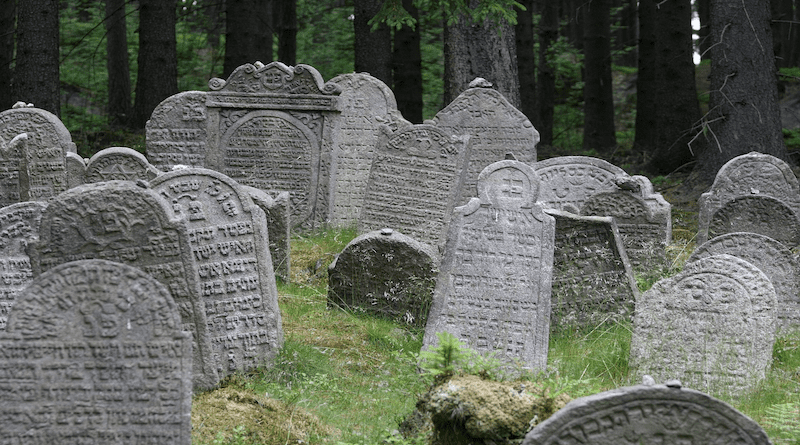There Are Seven Different Jewish Views Or Options For Your Afterlife – OpEd
The most important general principle that reflects Jewish views of death and burial is do not do what the Egyptians did. This means do not build massive or expensive monuments for the dead. Instead spend it on charity for the needy in honor of the dead person. The simpler the funeral the better. Moses went away to die in a place where nobody knew its location to prevent the Jewish People from building a monument for him. This is why the Torah does not refer to any of the following seven different views of the afterlife. Only centuries later do the Prophets and even later the rabbis begin to speak about possible afterlifes.
1- Humans are not different from animals. All end up in the same place. Hebrew Bible, Ecclesiastes 3:19-21 In the Biblical book of Ecclesiastes verse 9:5 claims “the dead do not know anything,” and none of their personality, consciousness, or connection to the world continue after death: Ecclesiastes 9:6 states: “Their loves, their hates, their jealousies have long since perished; and they have no more share till the end of time in all that goes on under the sun…. and 9:10 “Whatever it is in your power to do, do (now) with all your might. For there is no action, no reasoning, no learning, no wisdom in sheʾol, where you are going.”
2- Sheol; the big question. There is some kind of afterlife, but no one knows what it is: it is not heaven or hell. Hebrew Bible, Psalms 6:5, 88:10 and 115:17.
3- Resurrection during the Messianic Age as part of God’s Final Judgement. Good people live again on earth for a long time, evil people die quickly. Hebrew Bible, Daniel 12:1-4 and Isaiah 26:19-21, 17:15. Ideas #1-3 are Biblical ideas The following four views, #4-7 are post Biblical rabbinic ideas.
4- Postmortem reward and punishment for individuals: between death and resurrection everyone, except saints, goes to Gehenom purgatory for 1-12 months to atone for their sins. Most people, including non Jewish good people, then go to Gan Eden, a good place since it is populated by good people. Evil people who are still unrepentant after 12 months of painful confrontation with their sins are extinguished (avadon). The great majority of people are basically good (that is why Jewish custom is to say the Kaddish prayer for the dead for only 11 and not 12 months) and only really evil people do not enter the spiritual world to come.
5- Immortality: Based on the laws of Physics that matter and energy are never destroyed but only transformed. Thus just as the body disorganizes into its basic molecules and is recycled in the ground; so does the soul lose it’s personal memories and yet its basic energy becomes part of the cosmic energy of the universe. This view was popular among Jews in the Greek/Roman Empire and was revived by many Reform Progressive Jews in the 19th century.
6- Gilgul- Recycling: Reincarnation is a Kabbalistic concept that arose in Spain in the 12th century and became popular in 18-19th century Eastern Europe through Hassidism. Unlike Indian concepts, gilgul is limited to humans and does not occur to everyone. There are new souls born all the time. Most current living souls do not return. Some of those who return, do so as a punishment but for most souls it is a second chance to improve themselves. Female souls return to help their husbands live a better life. Souls of Jews who were cut off from the Jewish people violently or voluntarily are reborn in a non-Jewish descendent and return to the Jewish people through conversion/reversion to Judaism.
7- Some of these concepts are not mutually exclusive. Most Kabbalists and Hassidim believed in #3 and #4 and #6 Many Jews today believe in #5 and #6. For most of the 20th century most non-Orthodox Jews believed in #1 and #2.
I think what happens to you depend partly on what you believe will happen to you #7. If you believe in Gilgul you become a gilgul. If not, you don’t. So what you believe is important. However, if you do not believe in a reward and you deserve it you will still receive it; and it does not matter what Hitler or Stalin believed: there is a judge and there is judgement. Genesis 18:25.
For more information about the after-life see my book: WHICH RELIGION IS RIGHT FOR YOU?

